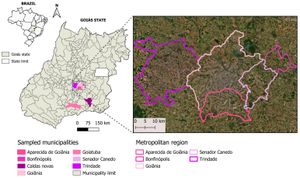On July 20, 1969, the world witnessed history as Apollo 11 astronauts Neil Armstrong and Edwin 'Buzz' Aldrin became the first human beings to set foot on the lunar surface. Yet, the story of the mission does not end with the moon landing; the experiences of the astronauts upon their return to Earth tell another compelling chapter.
Among these pivotal figures was Michael Collins, often referred to as the 'forgotten astronaut.' While his crewmates collected lunar rocks, Collins orbited the far side of the moon, accomplishing his own important mission. During a 2019 interview with 60 Minutes Australia, Collins reflected on his contributions, stating, "Did I have the best seat on Apollo 11? No. Was I happy with the seat I did have? Yes – I really was, and to be any small part of it suited me very, very well. And, besides, I was their ticket home – they couldn't get home without me." This candid admission reveals Collins' deep appreciation for his role, even if it was less celebrated than his fellow astronauts.
Upon returning from their historic mission, the astronauts faced unexpected challenges. Collins recounted the unique post-mission treatment they received: "We were put_into quarantine for two weeks. Some of our scientists were worried about the pathogens we might have brought back from the moon; they possibly would be dangerous to humankind." This precautionary measure led them to be confined within a hermetically sealed container alongside white mice, whose survival would determine the astronauts’ safety. "If the white mice lived, we were okay; if the white mice died, we were in deep trouble," Collins humorously elaborated.
The quarantine, lasting for two weeks, was no ordinary experience, and Collins became attached to the creatures during this time. "Of course, I was checking on them... there were too many of them to give names to but they became my friends," he remarked. The survival of the mice signaled the astronauts’ health was intact, and thankfully, they were discharged back to the comforts of home.
Reflecting on his time onboard Apollo 11, Collins shared, "The food was terrible, and it was not a very comfortable place, but I did enjoy my time there.” His comments shed light on the often-overlooked aspects of space travel – the discomfort and challenges faced by astronauts. That said, he affirmed, "the moon was 'nothing compared to our home planet.'” This sentiment resonates deeply considering the extraordinary mission they accomplished.
While Armstrong and Aldrin stepped onto the moon and captured the world's attention, Collins played his own significant role, ensuring safe passage back for the astronauts. His storied experience and willingness to embrace the challenges of being on the mission highlight the teamwork and cooperation required for such historic endeavors.
Collins passed away on April 28, 2021, but his legacy and insights continue to shed light on the Apollo 11 mission and the human spirit's quest for exploration. The treatment of the astronauts after their monumental mission serves as a reminder of the precautions taken and the risks involved with space travel, as well as the hidden stories of those who played pivotal roles, often shadowed by more recognized figures.
The Apollo 11 mission was not just about setting foot on the moon; it was about humanity's drive to understand and explore. Through their shared experiences, the astronauts demonstrated resilience and courage, qualities celebrated not just during their mission, but also in the unique challenges they faced after returning to Earth.



